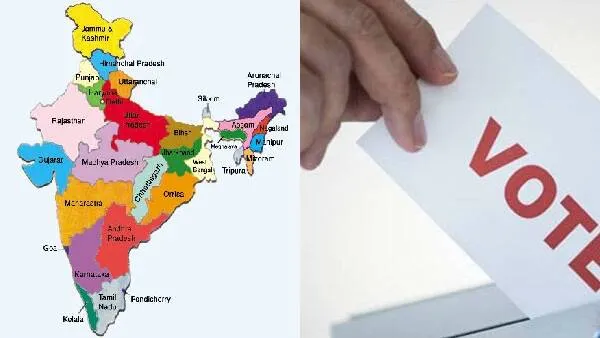

The delimitation of constituencies for the Lok Sabha elections has become a major controversy even before the process begins. Delimitation refers to the process of redrawing the boundaries of electoral constituencies to reflect changes in population.
There is concern that the number of Lok Sabha seats in the southern Indian states will decrease after the delimitation. At the same time, there will be a significant increase in northern states like UP. The current political situation confirms the allegation that the political interests of the BJP ruling at the center will get first priority in the delimitation of constituencies.
Tamil Nadu Chief Minister M.K. Stalin, who is at war with the center over the accusation that Hindi is being imposed, was the first to come forward against the injustice in the delimitation of constituencies. Apart from the language issue, Tamil Nadu is also of the view that the national education policy is unacceptable to them.
Stalin says that no matter how much assistance they lose in this issue, they do not care. Stalin came forward with his uncompromising stance following the center's warning that Tamil Nadu will lose over two thousand crore rupees of assistance as per the national education policy if the central norms are not accepted. Union Home Minister Amit Shah has assured that even if the delimitation is carried out, the southern states will not lose even a single seat from their current numbers. Amit Shah's assurance was made by quoting the Prime Minister on the issue. However, the southern chief ministers do not have much faith in Shah's words. The population growth in the southern states, which are at the forefront of the family planning issue, is gradually decreasing.
When the criterion of one Lok Sabha constituency for every 20 lakh people is implemented, the southern states, which have no population growth, will naturally lose their seats. If the criterion is followed exactly, Tamil Nadu will lose its current 39 Lok Sabha seats. It is estimated that Kerala will lose two seats. Similarly, Karnataka, Telangana and Andhra will also lose seats. Tamil Nadu, which will face the assembly elections in 2026, is trying to secure political gains by throwing a punch ahead of the others. He also has the support of all the southern states.
If the criterion of one constituency for every 20 lakh people is implemented, the current strength of 545 members in the Lok Sabha is likely to increase to more than 750. Naturally, the BJP will benefit from this increase of more than 200 seats. This is so since the BJP already has the upper hand in the northern states.
There will be an increase of 40 seats in UP alone if the population criterion is adopted for the delimitation of constituencies. Similarly, seats will increase in states like Bihar, Madhya Pradesh, Rajasthan. The rulers of the southern states are demanding that new criteria be found to avoid this imbalance. Their demand is quite justified.
Representation in Parliament should not be in a way that benefits only any party or group. If all the parties in the country want equality, suitable criteria should be devised for delimitation. For this, the Centre should convene an all-party meeting and listen to the opinions and suggestions. Delimitation of constituencies based solely on population will be a violation of natural justice. It will also cause large-scale political conflicts and controversies in the country.